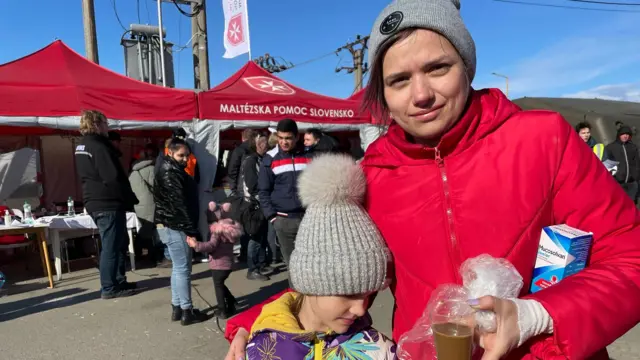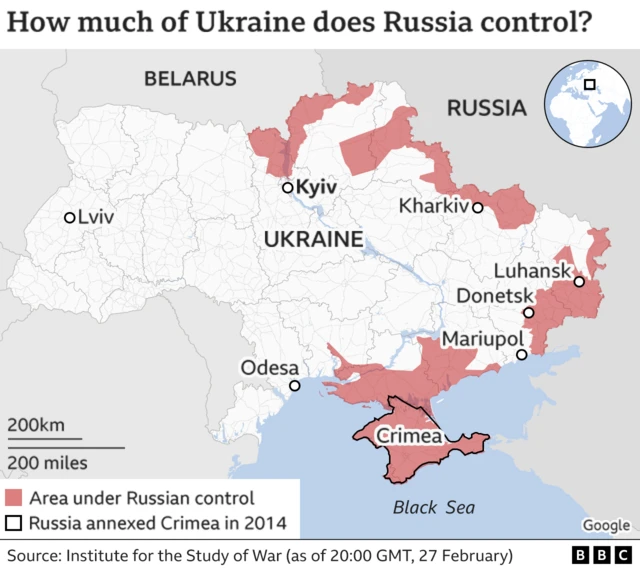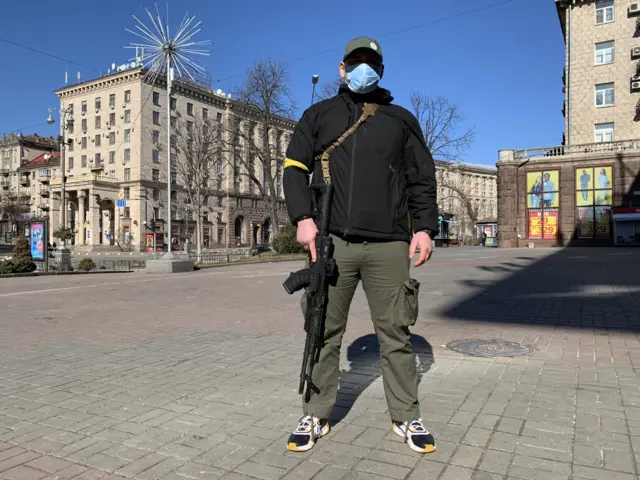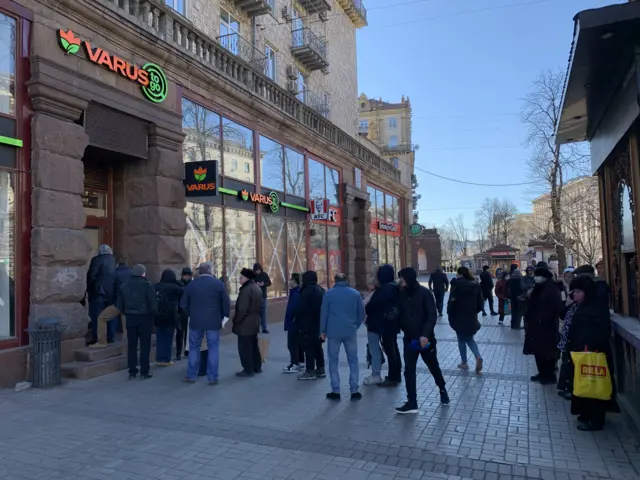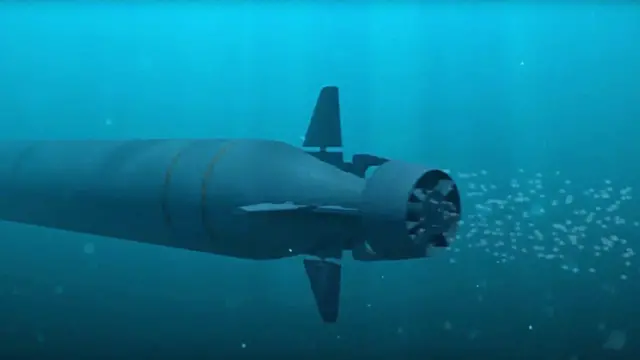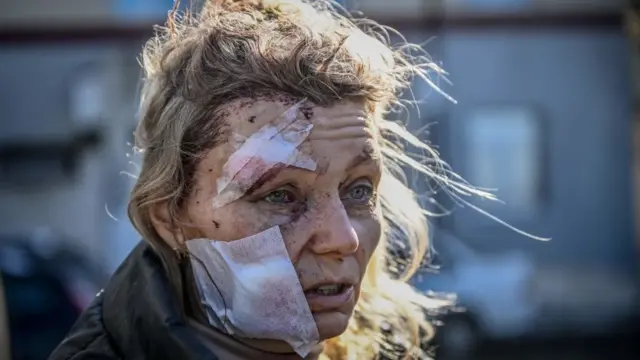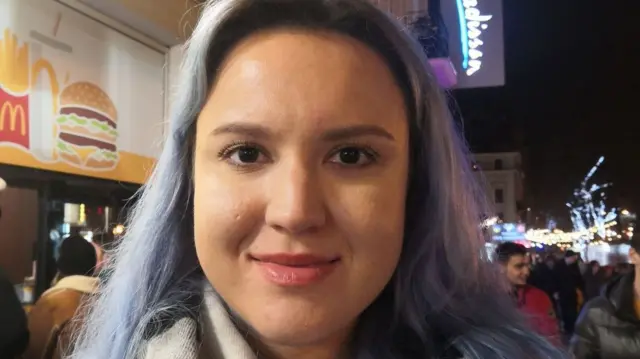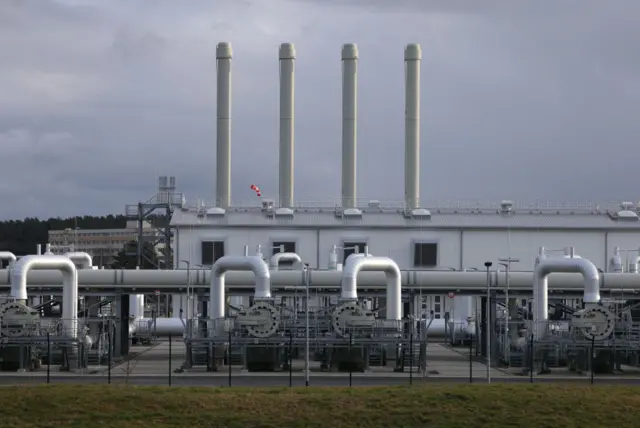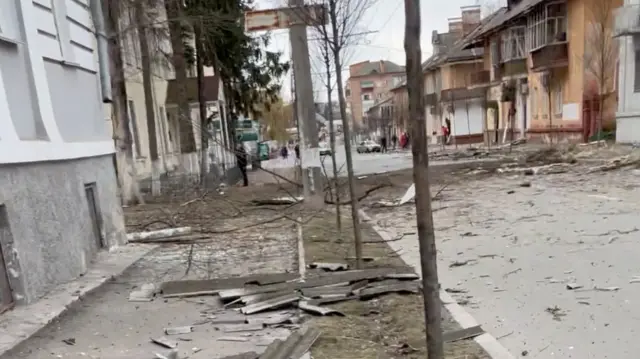EU lobs sanctions at Russia's most powerfulpublished at 21:14 GMT 28 February 2022
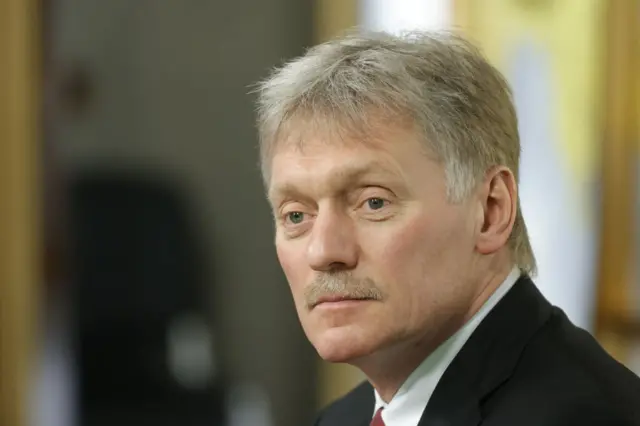 Image source, Getty Images
Image source, Getty ImagesRussia's Presidential Spokesman Dmitry Peskov
The European Union has launched an unprecedented flurry of sanctions against Russia's most powerful people and companies.
On Monday, it released a list of 26 individuals who will face sanctions.
The list includes:
- Kremlin press secretary Dmitry Peskov
- Alexander Ponomarenko, chairman of the board of Sheremetyevo International Airport in Moscow
- Igor Sechin, CEO of the state-owned Rosneft Oil Company
- Nikolay Tokarev, CEO of Transneft, the world's largest oil pipeline company
- Several Russian state TV presenters and journalists
The EU will also sanction the Gas Insurance Industry Company in Moscow, which reportedly aided the annexation of Crimea in 2014.
The full list is available here, external.
